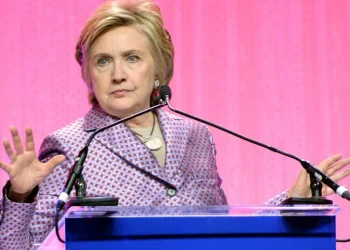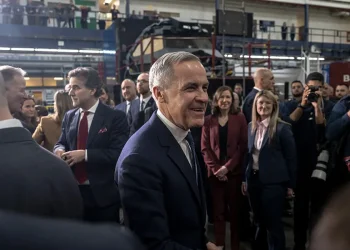LONDON (news agencies) — Millions of voters in Britain are going to the polls Thursday to choose a new House of Commons and a new government.
Voters will elect 650 lawmakers representing as many constituencies, or local areas, and the leader of the party that returns the most lawmakers will become prime minister.
Prime Minister Rishi Sunak’s Conservatives are widely expected to lose to the main opposition party, the left-of-center Labour, after 14 years in power under five different prime ministers.
The Conservatives and Labour traditionally dominate British politics under the U.K.’s “first past the post” electoral system, which makes it difficult for smaller parties to win representation in Parliament.
But also in the running are the Liberal Democrats, Reform UK, the Scottish National Party and the Greens, among others.
Here’s a look at the parties, who’s leading them and what they are promising:
Who’s their leader? Prime Minister Rishi Sunak.
Sunak, 44, came to power in October 2022 when he inherited a Conservative Party and an economy in turmoil after Liz Truss’s short-lived premiership. The Oxford graduate and former Goldman Sachs hedge fund manager is Britain’s first leader of color and the first Hindu to become prime minister. Sunak has stressed he is the man who steadied the ship, but critics say he lacks political judgement and is out of touch with ordinary voters.
How many seats did they win in the last election? 365
What are they promising? Delivering a stronger economy and cutting taxes by some 17 billion pounds per year. Increasing public health spending above inflation, and boosting defense spending to 2.5% of GDP by 2030. The party says this will be paid for by savings on tax evasion and slashing welfare spending. The party also pledges to cap immigration numbers and remove some asylum-seekers to Rwanda.
Who’s their leader? Keir Starmer.
The 61-year-old lawyer, a former chief prosecutor for England and Wales, is the current favorite to be Britain’s next leader. A centrist and pragmatist, Starmer has worked hard to steer his party away from the more overtly socialist policies of former leader Jeremy Corbyn and quelled internal divisions. Critics call him unexciting and unambitious, but Labour has surged in popularity under his leadership.
How many seats did they win in the last election? 202
What are they promising? Promoting “wealth creation,” encouraging investment and improving Britain’s infrastructure like railways under a 10-year infrastructure strategy. Setting up a state-owned clean power company to boost energy security, paid for by a windfall tax on oil and gas giants. Taxing private schools to pay for thousands of new teachers in state schools. Cutting record-high public health waiting times.
Who’s their leader? Ed Davey.
Davey, 58, was first elected to Parliament in 1997. The former economics researcher served as the government’s energy and climate change secretary under an uneasy Conservative-Liberal Democrat coalition from 2012 to 2015. Davey became leader of the left-of-center Lib Dems in 2019 and was not a household name until this election, when he made headlines with multiple zany stunts — including bungee-jumping to urge voters to take “a leap of faith.”
How many seats did they win in the last election? 11
What are they promising? Improving Britain’s overstretched health and social care systems, including introducing free nursing care at home. Investing in renewable energy and home insulation. Clamping down on sewage-dumping water companies. Lowering the voting age to 16. Rejoining the European Union’s single market.
Who’s their leader? Nigel Farage.
Farage, a political firebrand who takes pride in being the disruptor in British politics, has posed a serious headache to the Conservatives since he announced he is running in the election. The 60-year-old populist has long divided opinion with his anti-migrant rhetoric and Euroskeptic stance. A key proponent of Brexit, Farage is capturing many disillusioned Conservative voters with his promises to cut immigration and focus on “British values.” Farage previously ran for Parliament seven times but never won.










 American Dollar Exchange Rate
American Dollar Exchange Rate